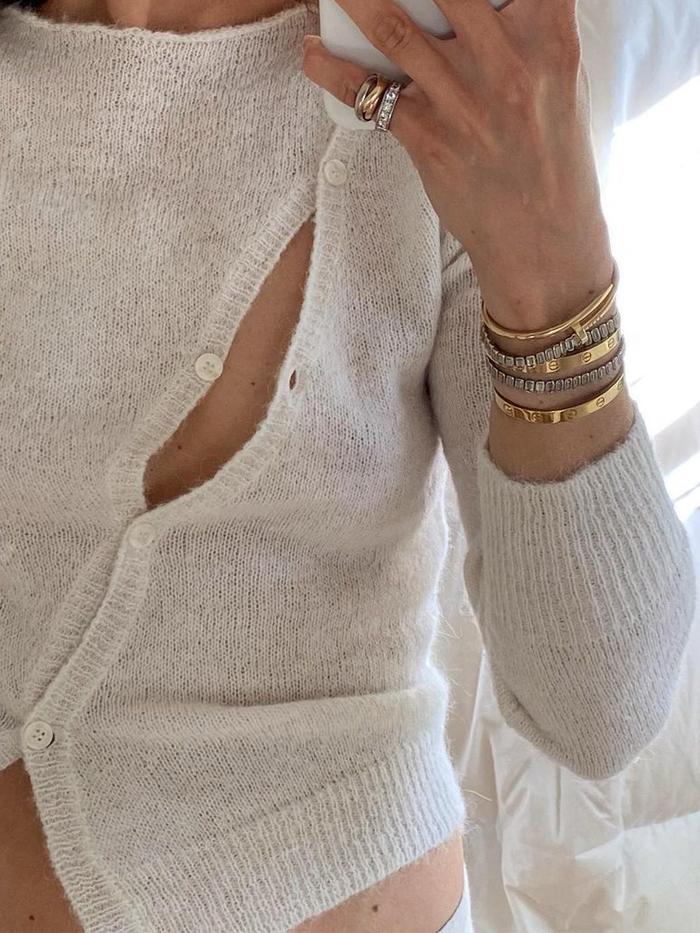My grandma is a practical woman—growing up on a rural farm in Canada will do that to you. She’s also incredibly knowledgeable, as all grandmas tend to be. This potent combination means that you will do well to listen when she gives advice. I’ve made many of my most significant life decisions based on her sage advice alone. (I regret none.) And one of the lessons she’s taught me and continues to stand by is that fine jewellery is a wise investment.
Flashy is not a word I’d use to describe her, but a peek inside her jewellery box would tell you otherwise. A small edit it may be, but every piece inside it is of the highest quality, with some illustrious names thrown in. One name that’ll get you places in the world of fine jewellery is Cartier.
Founded in Paris in 1847, what once was a small workshop has gone on to become one of the, if not the, most iconic jewellery brands in history. Cartier worked closely with countless sovereigns and royal families worldwide, creating everything from crowns and tiaras to necklaces and earrings. The brand has since become a regular on the red carpet, with celebrities wearing its glittering creations for premieres, award season and industry events. However, Cartier isn’t all about ornate pieces. (Though, it does them exceptionally well.) Some of its most recognisable jewellery, particularly the pieces that have become status symbols, have an industrial aesthetic—one of which is the Juste un Clou bangle.
The bracelet is the Cartier Love bracelet’s younger and easier-to-remove sister and was inspired by the humble nail. Its name is the French translation for “just a nail.” Released in 1971, the Juste un Clou bangle was designed by Aldo Cipullo, the luxury brand’s jewellery designer, who had a distinct minimalist, androgynous style and love of all things nuts, bolts and screws. The Juste un Clou, along with the Love bracelet, made Cartier relevant to a younger, more fashionable audience, with the pieces commanding a cult following.
In 2012, Cartier relaunched the Juste un Clou bangle and released an entirely new collection based around it. The new Juste un Clou offering included rings as well as bangles, all shaped like gracefully bent nails, like the original but with a modern twist. Each was made in rose, white and yellow gold, and some were outfitted with pavé diamonds set into the “head” of the nail.
In 2017, the Juste un Clou collection grew to encapsulate earrings, cufflinks, tie pins and an achingly cool torque necklace (you maybe have even seen Meghan Markle in it at the 2022 Invictus Games). That being said, it’s safe to say that the piece that started it all—the Juste un Clou bangle—is still the most coveted.
“The Juste un Clou bangle was originally released in the early 1970s, and from the beginning, it was meant to be a minimalist-style piece—it is really just a beautifully bent nail! It quickly became a coveted item amongst jewellery collectors and socialites, as it represents class and status, owing to its hefty price tag,” explains Regi Colomina, owner and founder of online shop Golden by Regi, which specialises in rare vintage and antique jewellery.
“I would say that the main focus for us vintage-jewellery lovers (and sellers) is really picking out the authentic bracelets from the replicas,” explains Colomina. “Such high demand for the Cartier bracelet has also come with high demand for fakes and sometimes really good fakes. All in all, the simple and distinct design of this bracelet, combined with the high price tag, makes the perfect recipe for jewellery aficionados to want it.”
While there are some brilliant second-hand Juste un Clou bangles to be found, Cartier continues to craft and sell the bangle, with prices for the thinnest iteration starting at £2900 and peaking at £83,000 for a thick style complete with 236 pavé diamonds. Of course, should money be no object, there are also Juste un Clou bangles that are listed as “price on request.” Dare to dream, huh?
Keep scrolling to see the various interpretations of the Juste un Clou bangle. I guarantee you’ll be tempted to heed my grandma’s advice.
Next Up: This Classic Vintage Bag Is a Better Investment Than Gold






